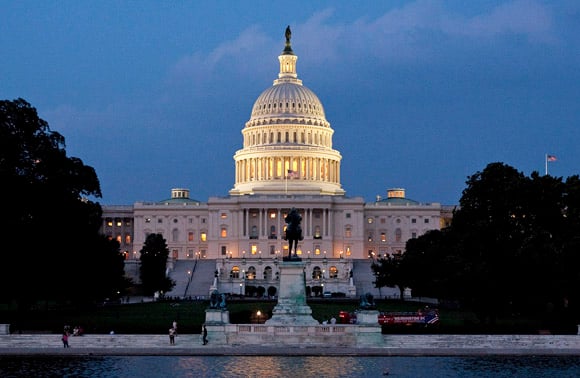One of the features of the fiscal-cliff bill approved last week by Congress was that it supposedly settled the question of marginal tax rates for good. It delivered the permanence to the vast majority of Bush tax cuts that investment advisers and their clients have long sought.
Keep in mind, though, that “permanent” is a relative term on Capitol Hill. Any tax, any law, in fact, can be modified whenever Congress pleases. It's perhaps the most important congressional prerogative.
The eagerness lawmakers to tinker with the tax code was demonstrated a little more than 36 hours after the House approved the fiscal-cliff bill at 11 p.m. on New Year's Day. At noon on Jan. 3, the new congressional session began.
Not long after members of the 113th Congress were sworn in, they began to introduce bills. One of the most popular categories was tax reform. A total of
11 tax bills has been introduced so far, and the House was only in session through Jan. 4 before taking another week-long break.
A measure that would shutter the IRS and abolish the income tax and replace it with a national sales tax (
H.R. 25) instantly garnered 53 cosponsors. Authored by Rep. Rob Woodall, R-Ga., the bill is known as the Fair Tax.
“The Fair Tax addresses so many of the challenges Americans face today,” Mr. Woodall said in a statement. “By passing the Fair Tax, Congress can shield middle-class Americans from the burden of the payroll tax, the largest tax burden that most American families bear. The Fair Tax would make it easier for businesses to grow and hire new workers by abolishing America's corporate income tax, currently the highest in the world. By passing the Fair Tax, Congress can also protect Social Security and Medicare for current and future retirees by switching to a more reliable revenue stream and increasing the number of Americans who contribute.”
Although that's a rousing pitch for the bill, it's a long way from even getting a hearing in the House Ways & Means Committee. In fact, it's a long shot.
Two bills that would eliminate estate and gift taxes also were introduced last week. One of them, H.R. 147, has 27 cosponsors. Last year, a similar bill garnered more than 218 cosponsors, or a majority of the House. But even if the legislation starts to roll again this year, it's unlikely that Senate Democrats will agree to do away with estate and gift taxes entirely.
What the activity does show, though, is that lawmakers can't leave the tax code alone – and that more tax changes may be on the horizon.
“I am encouraged by the bipartisan, bicameral commitment to tackle fundamental tax reform this year on behalf of the American people,” Woodall said.







